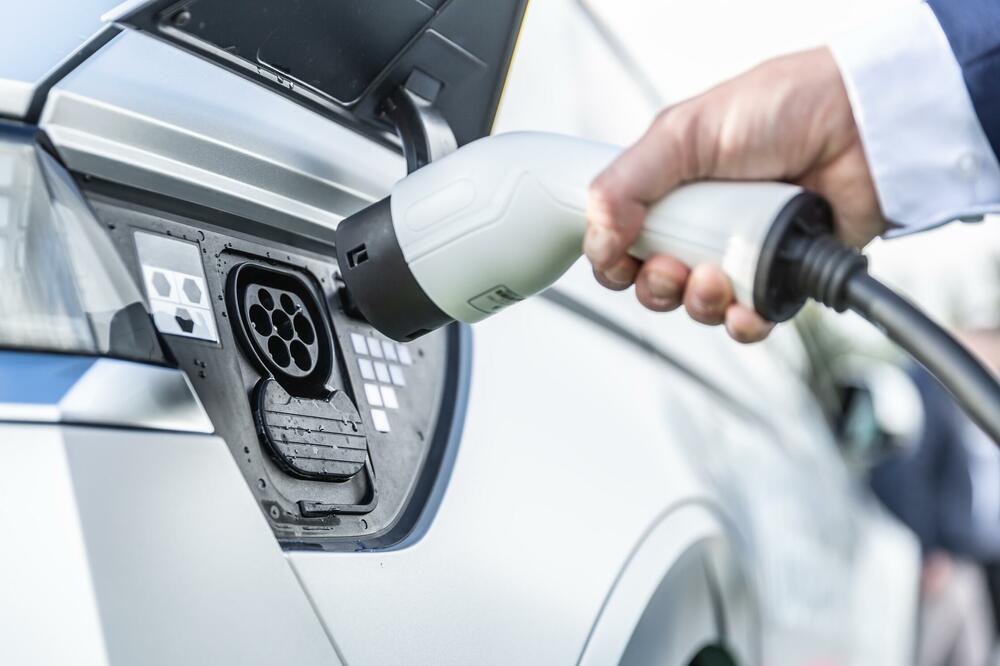The future of private transportation is often shown in clean, gentle and quiet commercials: cars that purr quietly and without harmful emissions on almost empty streets, through untouched nature or in clean cities without crowds, take relaxed "passengers" to work or shopping.
But the reality is different. Traffic jams, noise, stench everywhere. According to Germany's Federal Motor Transport Authority (KBA), the market share of electric cars in Germany has grown significantly, but only to 2,08 percent.
This means that every fiftieth car drives exclusively on electric power.
This worries many and leads to the question - will the German automobile industry, the country's most important employer and export branch, be able to withstand the global race?
"Race is over"
Germany is not among the leaders in the development of electric mobility.
"By continuously reducing the bonus for the purchase of electric cars, Economy Minister Robert Habeck has put the electric car into reverse in Germany," says Ferdinand Dudenhefer, who until his retirement was a professor of automotive economics at the University of Duisburg-Essen and is now an independent consultant.
In his opinion, the market share of electric cars in Germany will – fall. Even at the international level, he tells DW, the outlook is "not promising".
"Only China will continue at full speed and it will pay off double or triple for the Chinese auto industry," this expert is convinced.
Štefan Bracel, director of the Center for Automotive Management, is also pessimistic. He says that "the race in electromobility in Germany, Europe and China is already over".
Regarding the goals of the German authorities, to have fifteen million electric cars on the streets by 2030, Bracel says that they are too ambitious. "The goals will not be achieved," he believes.
"There is hopelessness in Germany"
Bracel says German automakers are "latecomers compared to global players like Tesla or some Chinese manufacturers."
"There are signs of an effort to make progress, especially in battery technology, but first we have to catch up with the speed at which the Chinese and Tesla are advancing," he adds.
Ferdinand Dudenheffer also believes that China has a clear advantage: "We are slowing down. Investments are being postponed, and investments are being made in China," he states. "Germany is lagging behind. And things will become very difficult after 2025. Then China will dominate."
He believes that there is "hopelessness" in Germany when it comes to the development of the automotive industry.
Dependence on China
BMW and Mercedec-Benz announced at the end of November that they plan to build a joint network of fast charging stations for electric cars in China.
For Dudenheffer, this is quite logical: "Germany is not a country where such investments pay off. In China, electric cars now have almost 40 percent of the market share. It pays off there."
Štefan Bracel also sees the danger of dependence on China, although he adds that there is a reciprocal relationship: "China also depends on us." But one thing is clear: "In the area of electromobility, we depend more on China than it does on us. It will stay that way for a few more years. Especially when it comes to batteries."
Dudenhefer, who talks to DW about the development and production of batteries, agrees with this assessment: "We are expanding too slowly." Production goes to Eastern Europe, because energy is cheap there. But China is already a central country for battery production, and its importance is growing more and more."
Production decline
Manufacturers are also feeling the disappointing demand in Germany. At the Volkswagen factory in Emden, the production of electric cars already stopped at the beginning of the summer, the second shift was abolished and there were numerous breaks in production.
The Christmas break in production started much earlier this year and was extended until January 15. The production of e-cars in Emden will be completely suspended for a total of five weeks.
The production of electric cars requires fewer work steps and fewer employees. Not only among car manufacturers, but also among their suppliers.
Up to 1.500 jobs will be lost at supplier Bosch, the company announced at the beginning of December.
But from the customer's perspective, things look better, says Dudenhefer. He notes that in China you can already drive for a thousand kilometers on a single battery charge – that's more than you can do with a full tank of fuel.
In a few years, no one will worry about battery range anymore. "And prices will also drop with the new generation of batteries. And that will be achieved first in China, because that is where the center of gravity is."
According to KBA estimates, around ten million electric vehicles will be registered in Germany by 2030. This means that every fourth or fifth car would go electric.
But these experts do not say how many of these electric vehicles will come from German production.
Bonus video:





